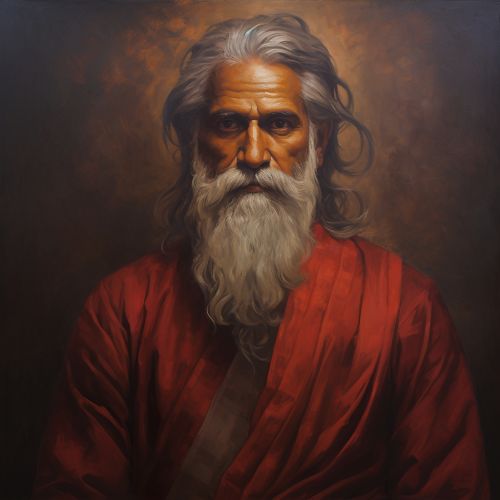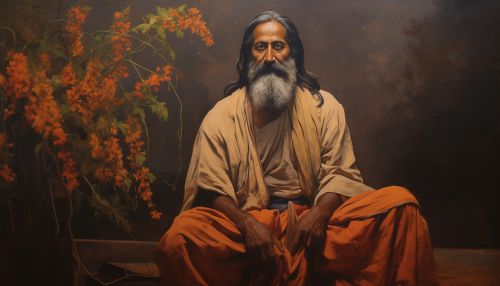Valmiki
Early Life
Valmiki, also known as Maharishi Valmiki, is a revered sage in the ancient Indian tradition. He is traditionally regarded as the author of the epic Ramayana, one of the two major Sanskrit epics of ancient Indian literature. The Ramayana narrates the life of Rama, the legendary prince of the Kosala Kingdom.
Valmiki is believed to have lived around the era of Lord Rama. The exact time of his existence is not known, but it is estimated to be around the 5th to 4th century BCE. His birthplace is believed to be a place called Bhrigu, which is located near the banks of the Ganges River in modern-day northern India.


Life as a Sage
Valmiki's life story is quite unique and inspiring. He was not born a sage, but became one through deep meditation and penance. Before his transformation, he was a highway robber named Ratnakar, who used to loot people for a living. One day, he met the great sage Narada, who showed him the error of his ways and guided him towards the path of spirituality.
Valmiki then retreated to the forest and began to meditate. It is said that he meditated for such a long time that anthills grew around him, and he was completely covered by them. When he finally emerged from his meditation, he had transformed into a great sage. He was then named Valmiki, which means 'one born out of anthills'.
Contribution to Literature
Valmiki's most significant contribution to Indian literature is the epic Ramayana. The Ramayana is not just a story, but also a spiritual guide that teaches the ideals of dharma (righteousness), devotion to duty, loyalty, honor, and the power of truth. The epic is divided into seven books, known as Kandas, and contains about 24,000 verses.
Valmiki's Ramayana is written in a form of Sanskrit known as Classical Sanskrit. It is considered the first epic poem in Sanskrit and has had a profound influence on Indian culture, literature, and spirituality. The characters of Rama, Sita, Lakshmana, and Hanuman, who are central to the epic, are revered and worshipped across India and in many other parts of the world.
Legacy
Valmiki's legacy is immense and continues to influence Indian society and culture. His teachings and philosophy, as expressed in the Ramayana, have shaped the moral and ethical fabric of Indian society. The epic has been translated into various languages and has inspired countless adaptations in literature, theater, film, and television.
Valmiki is also revered as the 'Adi Kavi', or the first poet, as he is believed to have invented the 'shloka' (verse), a specific form of Sanskrit poetry. His birthday, known as Valmiki Jayanti, is celebrated with great reverence and enthusiasm across India.
